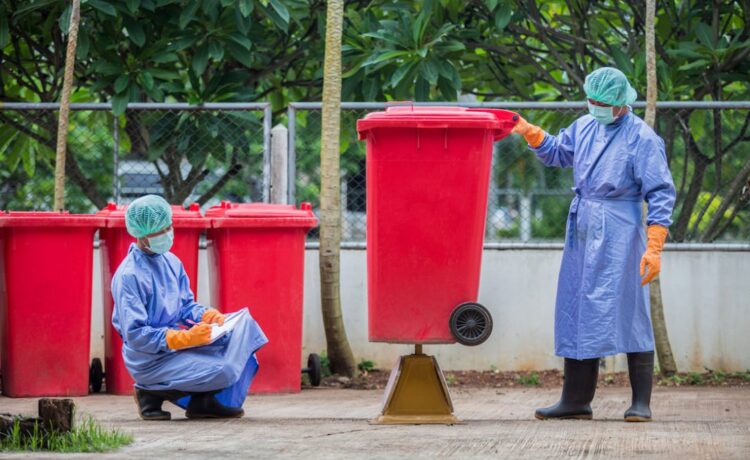Not all waste is handled the same in this world and whilst the majority does head to landfill, there is a lot which has a different road to the site for various reasons. We know that there is more pressure than ever before on making sure that we recycle as much waste as possible, but there is a great deal of waste which not only cannot be recycled, but which must be treated before it is tossed. In particular we are talking about medical waste disposal, and here is exactly why this has to be treated differently from all other waste products.
Usual Path
In the main what we see happen with medical waste is that it is segregated on-site, and then when it is removed it is taken to an incinerator or a chemical sanitization site. The waste is either burned at very high temperatures or it is treated with powerful chemicals to kill all evidence of microbial life. Following these treatments the waste is then taken to sanitary landfill. There is some general waste which is collected from hospitals and medical facilities which goes to general landfill, but the majority is first treated.
Risk of Infection
The main reason of course as to why this waste must be treated differently is that the contents can include human waste, tools and equipment which has been used to treat people with a variety of infections and diseases. Contrary to what many may think, the bacteria and microbial life found in the waste does in fact present a risk of infection to those who may come into contact with it. Although landfill isn’t exactly found in the middle of a community, there can be no risk that anyone is going to come into contact with the waste, hence the need to destroy it or hyper-sanitize it.
Legal Requirements
Owing to the risks involved in the exposure of this untreated waste, there is a raft of laws around how waste must be handled, from the moment that it becomes waste to the moment that it is deposited on a landfill site. This is something which is carefully managed and enforced by the government, because of the fact that there is a potential pubic health risk.
Potential Reuse
Whilst the possibility of it happening may be small, we have in fact seen evidence in the past of people using medical waste for nefarious activities. This could be something such as weaponizing a virus or disease, to reusing medical equipment containers as part of some fraudulent scheme. Although the chances are very slim, there is absolutely no reason to run this risk and that is another reason why this kind of waste has to be treated differently from the rest.
Whilst much of the medial waste which is collected may end up at the same landfill site as some general waste, it is first sent through a series of treatments before it arrives there, and with good reason.





